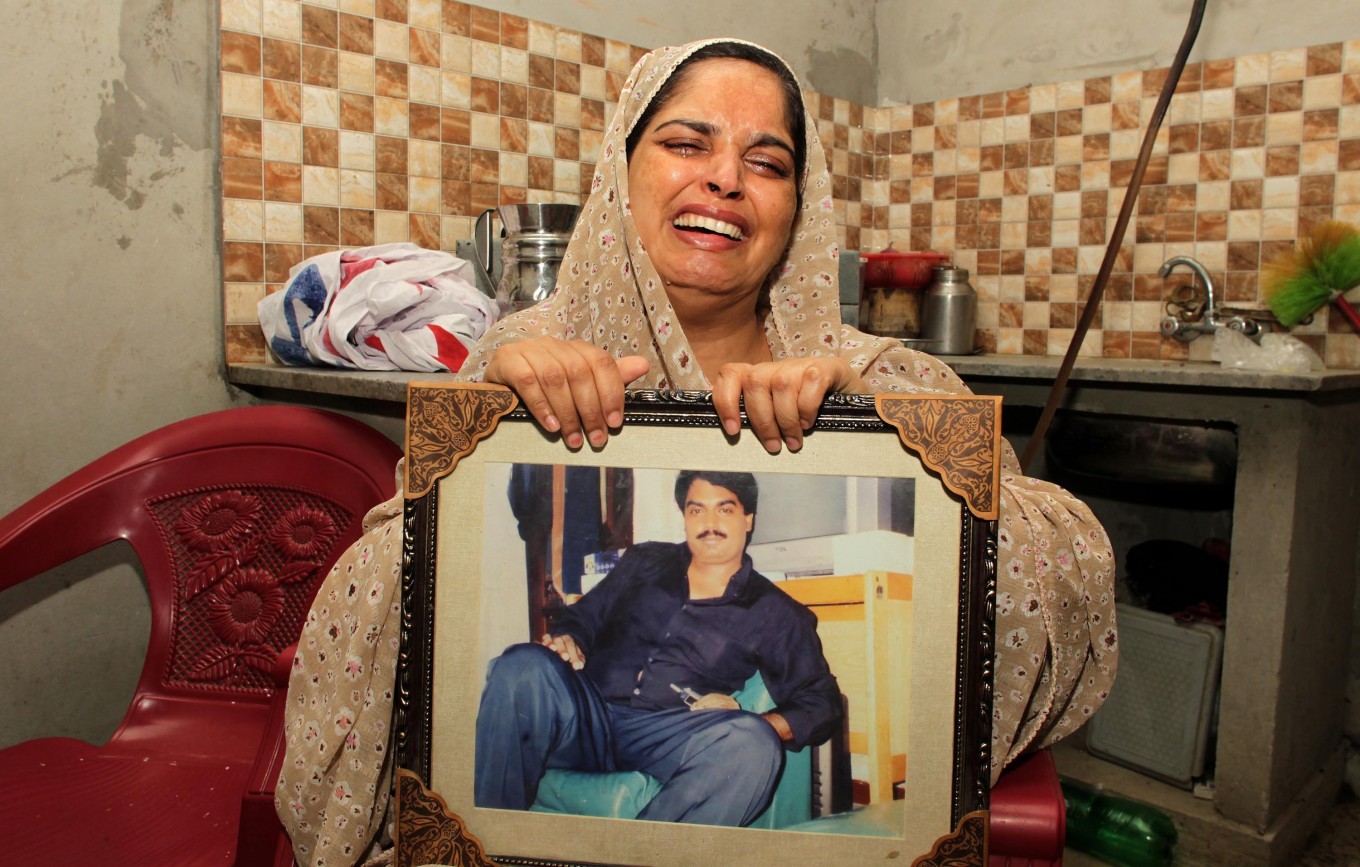Popular Reads
Top Results
Can't find what you're looking for?
View all search resultsPopular Reads
Top Results
Can't find what you're looking for?
View all search resultsTerminally ill and on death row in Indonesia—Pakistani national Zulfikar Ali requests to be sent home
Zulfiqar Ali, 54, is a Pakistani citizen on death row in Batu Prison in Indonesia. He was arrested in 2004 and sentenced to death on drug charges, following a forced confession and an unfair trial.On account of these violations, the former president of Indonesia commissioned an inquiry in 2010 which found Ali to be innocent.Nonetheless, in July 2016, warrants for his execution by firing squad were issued.With just 72 hours to live, former prime minister Nawaz Sharif stepped in and Ali’s execution was stayed.However, he remains on death row and his execution could be scheduled any day.Indonesian president, Joko Widodo, is visiting Pakistan and will address the parliament today. According to Justice Project Pakistan, the government of Pakistan must press upon him to release Ali so that he may spend his last days with his family on his home soil.
Change text size
Gift Premium Articles
to Anyone
T
here is pain. Blinding on some days, a dull companion on others. I wish I had become used to it by now, but everyday it feels a little bit more fresh.
The jail doctors have told me I have three months to live — six if I’m lucky. The cancer has left behind only a sliver of liver, despite the fact that almost $40,000 have been spent on my care so far.
They tell me that there are medicines that will make things easier. But to get them I have to pay $5,000.
Painkillers are luxuries that prisoners can ill afford. Perhaps they think that death row prisoners deserve the pain. I wouldn’t wish this agony upon my worst enemy.
Why I’m going through this is beyond me. A government inquiry ordered by the former president of Indonesia found me innocent.
Human rights groups all over the world are supporting me. Indonesian government officials say that the case against me is flawed, weak, and almost non-existent.
I was 38 in 2004 when my flatmate was caught with 300g of heroine in Jakarta. When the police arrested me, I was in Bogor, a city almost 100km away.
I had no idea why I was being arrested and when I asked, I was silenced with a punch and a kick.
Perhaps they thought I was trying to evade arrest. It’s easy to get confused when neither of you speak the language. My requests for a translator went unanswered for a month.
Oddly enough, I have not been able to find the words to describe what happened to me after my arrest, in any language.
When I say they kicked me, the verb feels inadequate. Nothing quite captures the weight of a leather shoe swiftly bashing your stomach. There’s an anger to the act, a deliberate, controlled anger which finds the spot where it hurts the most.
There’s a sudden deafening of the world around you. No, it is not enough to simply say “they kicked me.”
After a man has stood over you, telling you that he will tie you to the bumper of the car and make it race forward – you are never the same.
They said it would stop, the pain, if I signed on the dotted line. If I just admitted to partaking in drug trafficking, it would go away – the beating, the kicking, the punching, the death threats.
I was rushed into emergency kidney and liver surgery right after I gave my torture-induced, false confession.
Even if my mind began to heal from the trauma of the torture, pangs from my liver and kidneys would always remind me of those three days. It’s hard for your mind to forget if your body won’t let you.
I lived in Lahore before I moved to Indonesia in 2000 to work in a textiles factory. I thought the money would be better, my family’s life would improve, and that I would bring prosperity to my home — the same home that my aging mother has now had to sell to pay for my medical expenses.
I left Pakistan, but in the end it is Pakistan that has kept me alive so far. In 2016, my wife, Siti, received word from the Pakistan embassy, telling her I had 72 hours to live.
I had said my goodbyes. My youngest child, my son, was not yet eight-years-old, but I compressed the lessons I wanted to teach him about growing up in our last visit.
I was in a room with 13 others – a number that trickled down to 9. The sound of 27 bullets being fired at the same time lingers for a long time. Heavy rain did not drown it, my own pounding heart did not drown it.
But back home, a media storm was brewing. A loud one, and difficult to ignore. The Pakistani prime minister then made a phone call.
That call saved my life.
I am now a dying man, living with cancer in a prison cell. It’s laughable to think I am a danger to anyone.
I have spent the last 14 years of my life in jail for something I did not do. My children have grown up without me, and I have been unable to leave anything behind for them.
I want to come home, to my country, so that I can spend my last days with the people I love, not with guards in a cage.
The government of Pakistan has helped me before. I could not believe my luck, that they did so much for someone who can do nothing for them. But for a man who can do nothing, that means everything.
And sending me home costs less than a $5,000 painkiller










